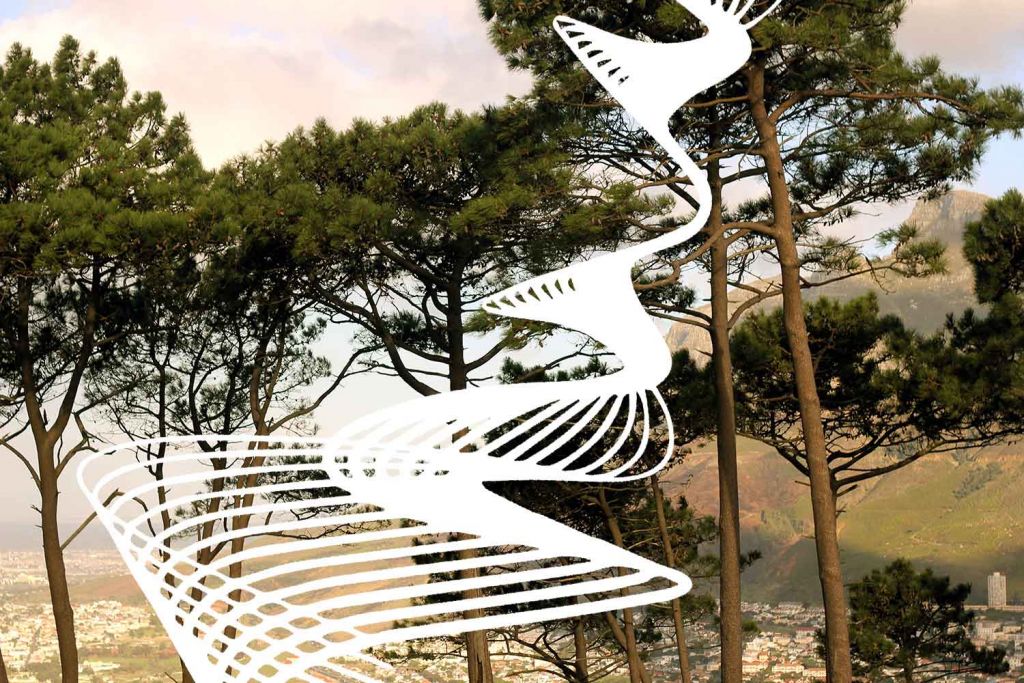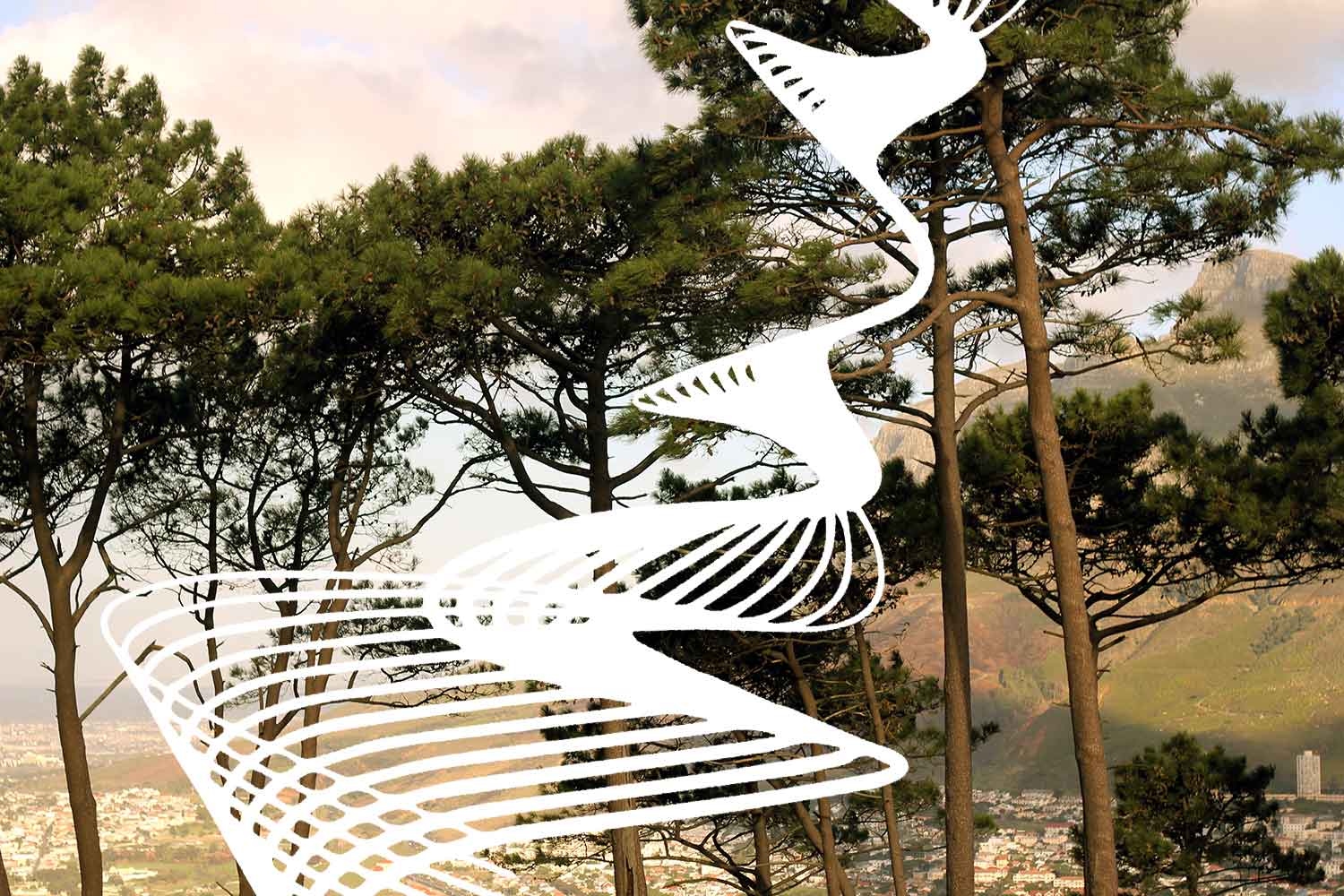Text by CLOT Magazine

The pandemic has changed how we listen to music. With venues closed worldwide and no perspective of live music for the foreseeable future the We’re All Bats programme shifted, like many other festivals and initiatives to an online platform.
The name We’re All Bats left us thinking about the symbolism behind. Bats find their way around and survive thanks to echo-location, call and response. The response is immediate, affected by listening. And as Cahen explains, people are like that as well to a certain degree, and I don’t mean to exclude those hard of hearing, they listen differently. Still, we are all using this perception of awareness to activity and surroundings to draw meaning on ourselves, on others, on the environment and our position within these situations. Quite a broad statement but the name also gives permission to go out of the norm, to say that there is no norm, we are all sustaining a relationship with an idea of the norm, so we need to contribute our perspective to the rest of us.
Joel Cahen and Daniel Mackenzie are together in this online adventure of the We’re all Bats programme which began as a commission from Waltham Forest London Borough of Culture 2019.
We filled the borough with events and workshops in public spaces such as a swimming pool, the market square and various routes through the borough, and in venues and a special needs school. All the events were based in the Listening Arts. Joel Cahen continues over Email.
Daniel Mackenzie himself is a musician and sound artist and one of the co-founders of Fort Process, the international sound and performance art festival that utilises the extraordinary resonant spaces of Newhaven Fort. And Joel Cahen has been organising events and art projects in London for around 17 years. Apart from We’re All Bats programme, Cahen is involved with Wet Sounds, an audio-visual experience in swimming pools above and below the water surface, and Scrapclub —co-founded with Wajid Yaseen—, a destructivist public action, letting audiences smash up stuff with sledgehammers.
Back to the We’re All Bat programme, Cahen told us that he uses Listening Arts as the term to describe the programme because the emphasis here is on the listener, the artist is sharing skills and insights based in the act of listening to that touch on the listeners’ relationships with themselves, with others, with their surroundings and with culture. Listening is attentiveness, mindfulness, responsibility, tolerance amongst others. One of his main aims with the channel is to encourage exchanges of inspiration, knowledge, skills and experiences and to create a direct remuneration system whereby audiences donate directly to the artist.
For Mackenzie, there’s something rather poignant about connecting people in relatively intimate ways at a time when social interaction can feel out of reach or not achievable without navigating difficult practicalities.
On the website, we find that The We’re All Bats Listening Channel focuses on the listening experience of the visitor. The programme includes the categories Listening for Early Years, Listening to Ourselves, Spaces of Listening and Listening as Culture to expand one’s aesthetic appreciation of sound and promote practical skills for listening to broaden one’s sound environment. People are tired of seeing, especially when there is so much to see, and much of that is brightly lit, glowing aggressively at you from a tiny screen, and with loaded intentions to distract, promote or indoctrinate. So there is something to be said for this project resisting the habits of a fairly ocular-centric society. Most of the channel content does not have any visual presence, or it is significantly reduced. It would be great if it could encourage people to open up and explore this sense as a means to divert from the saturation of seeing, in Mackenzie’s words.
And Cahen adds a good artistic experience fosters and nourishes these faculties in the individual showing how materials can be rearranged and patterns reformed to break stagnancy and remind us of the flux and interpersonal connections that are sometimes masked by ‘mundane’ but essential concerns.
What has the future in store for us? How do they imagine the “new normal”? For Cahen, people can’t wait to get back to public social environments and get away from the screen, and on the other hand, there will be people who would not bother with travel, financials, weather etc., and opt for staying in. So I think there is a place for both experiences, the online and the offline. We’re All Bats will definitely go outside to the public space and offer experiences in indoor and outdoor spaces as well as maintain the online channel. There is a wider engagement on the online channel by individuals who are geographically distant and/or don’t have the means to go out, so it’s valuable to keep it to maintain an exchange that crosses geographical, physical and financial barriers for creative exchange.
Mackenzie feels the term ‘new normal’ applies a dangerous reductionist idea to an uncertain future which needs more careful thought than a populist sound-byte would suggest. Remote platforms do not offer the same support for entities across the industries, nor the deep sense of connection to other human beings felt when sharing a memorable experience in a public space. So this ‘new normal’ for me has to recognise and implement things like this. I would be wary of committing too fully to what is expected of a post-COVID society; there are many conversations to have.






